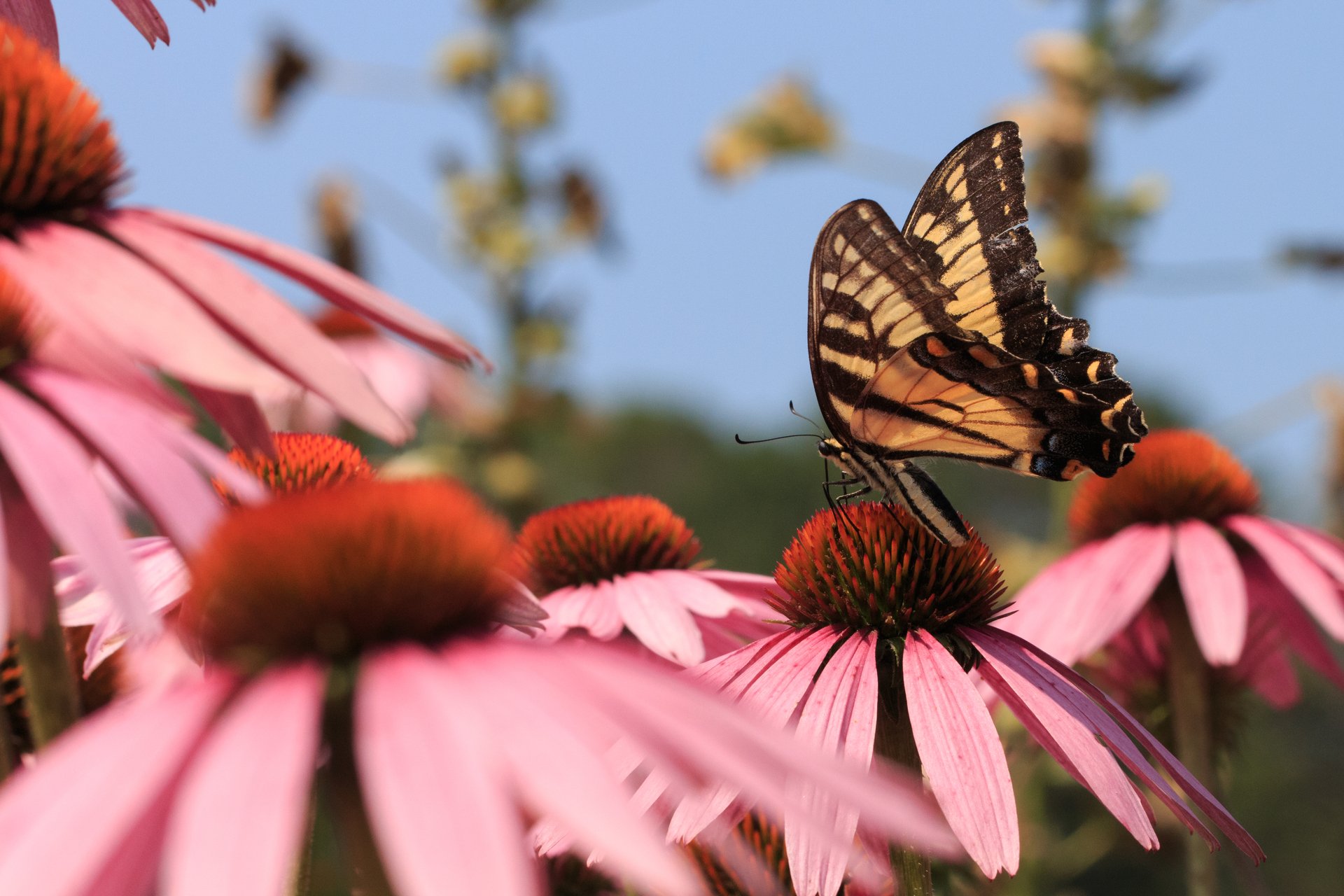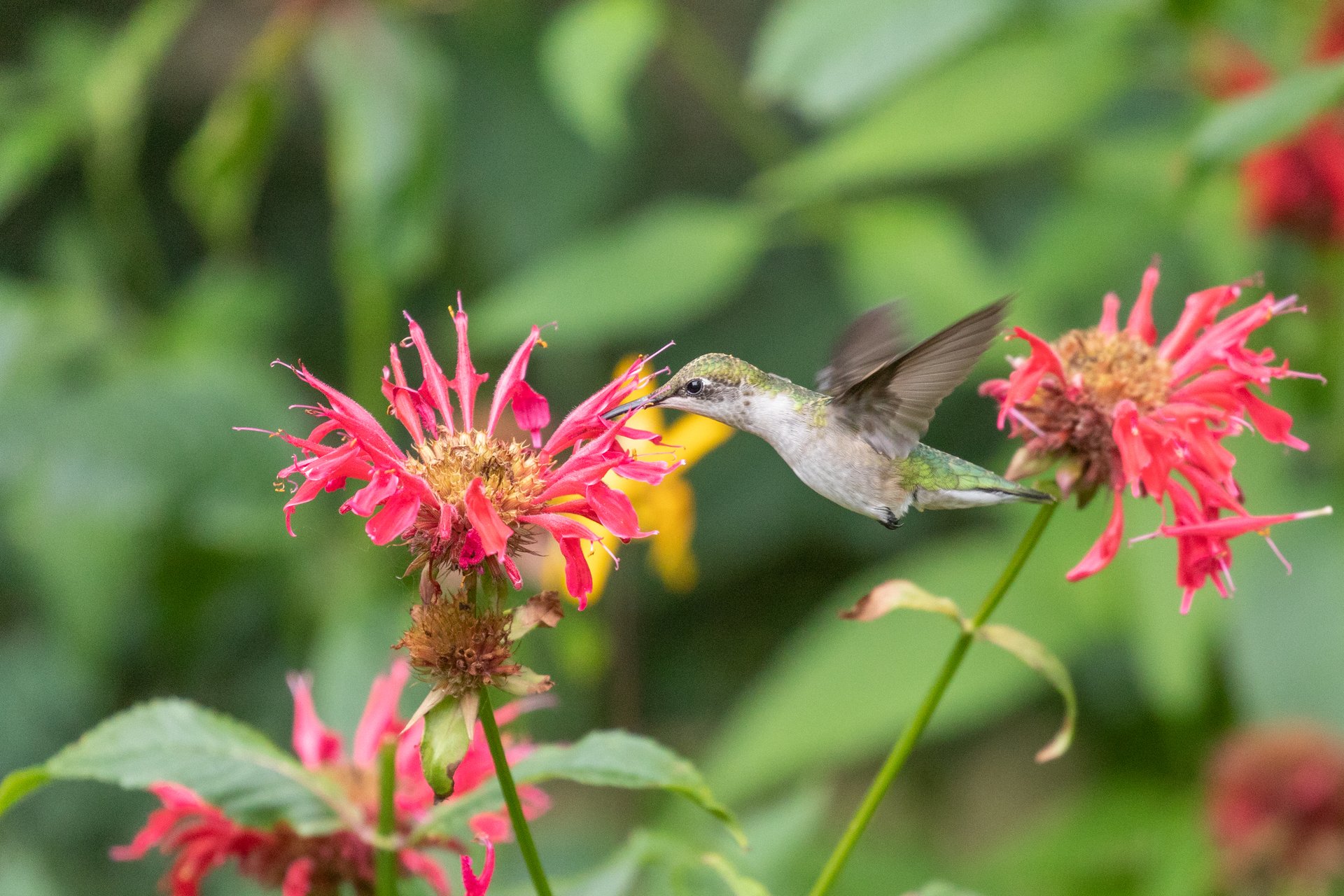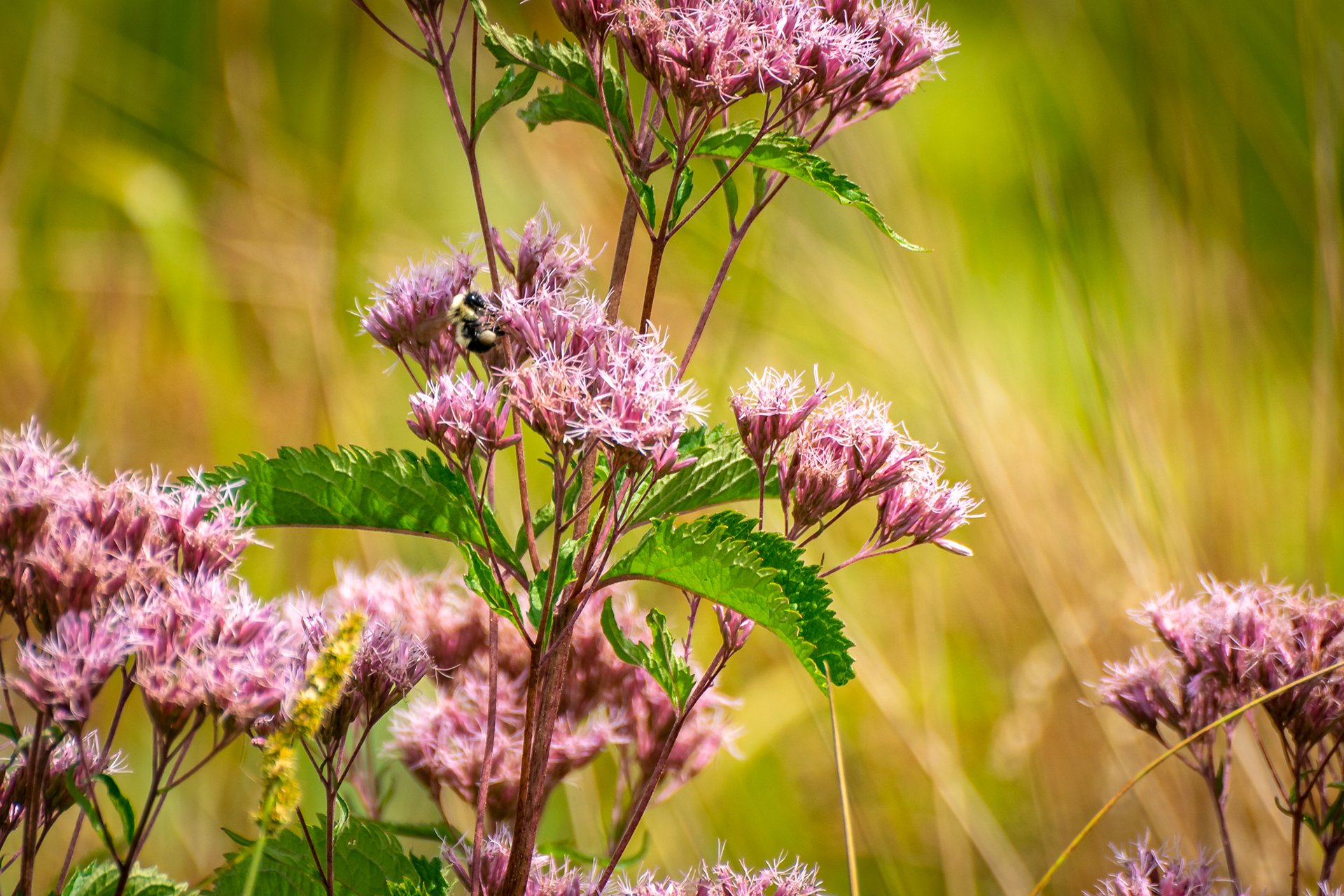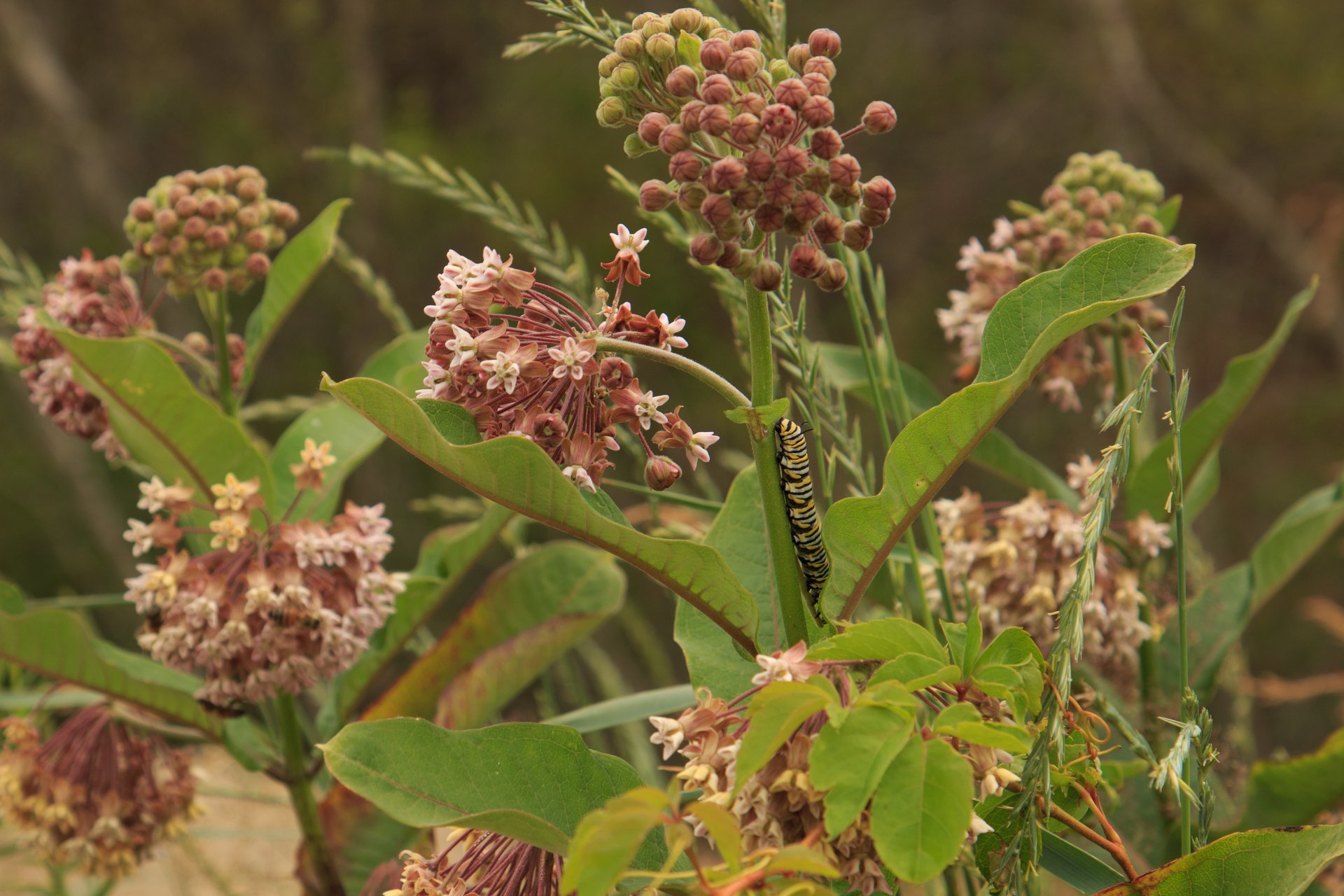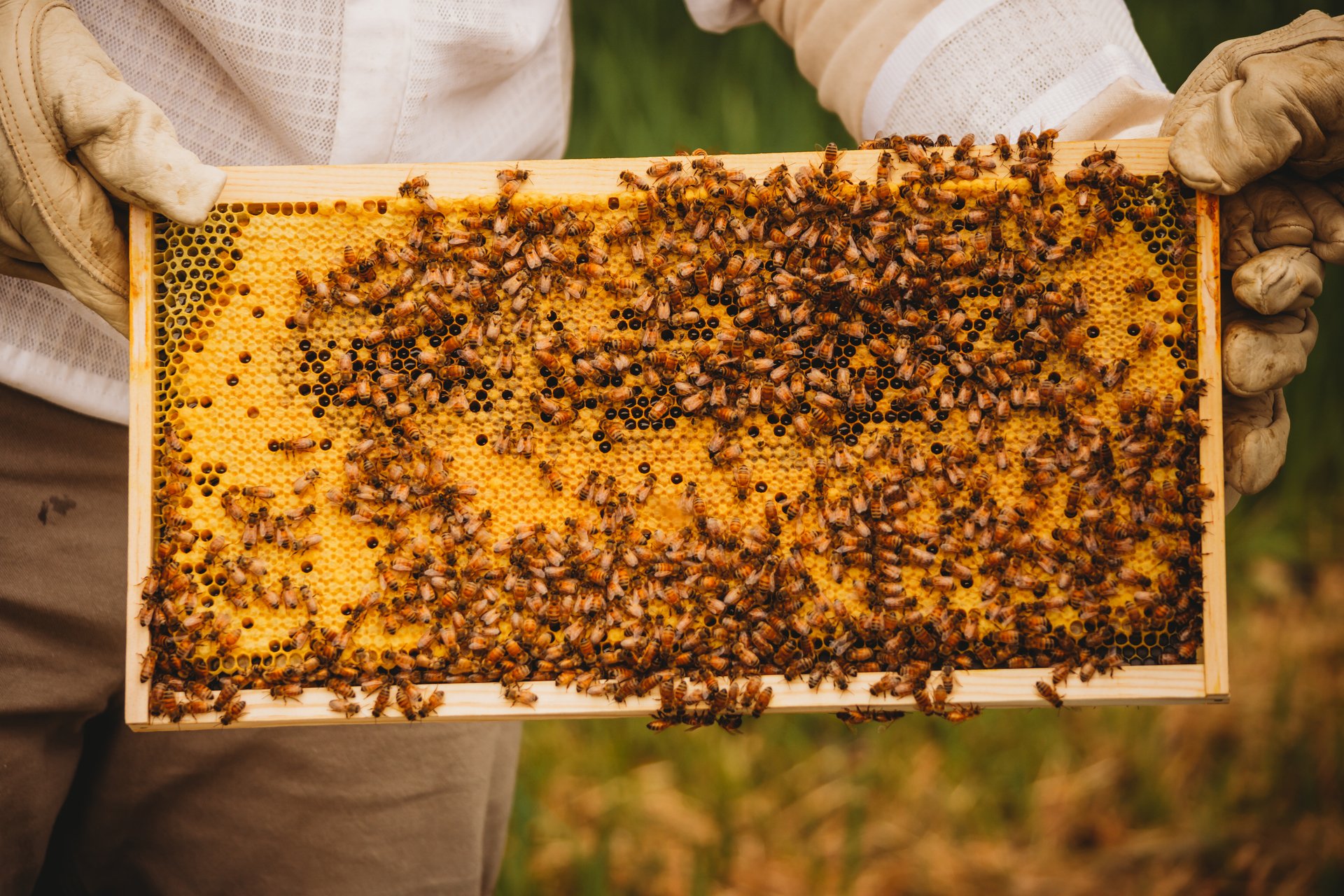The Power of Pollinators
Pollinators are animals that help plants reproduce by spreading a powdery material called pollen among flowers of the same species.
Animals, primarily bees, pollinate a majority of fruits and vegetables (non-grain crops) used in agriculture. Pollinators don’t just help plants; they rely on the rewards plants provide, such as energy-rich nectar and protein-rich pollen, to survive and reproduce.
Types of Pollinators in Massachusetts
There are many different types of pollinators in Massachusetts, from native bees to beetles to hummingbirds.
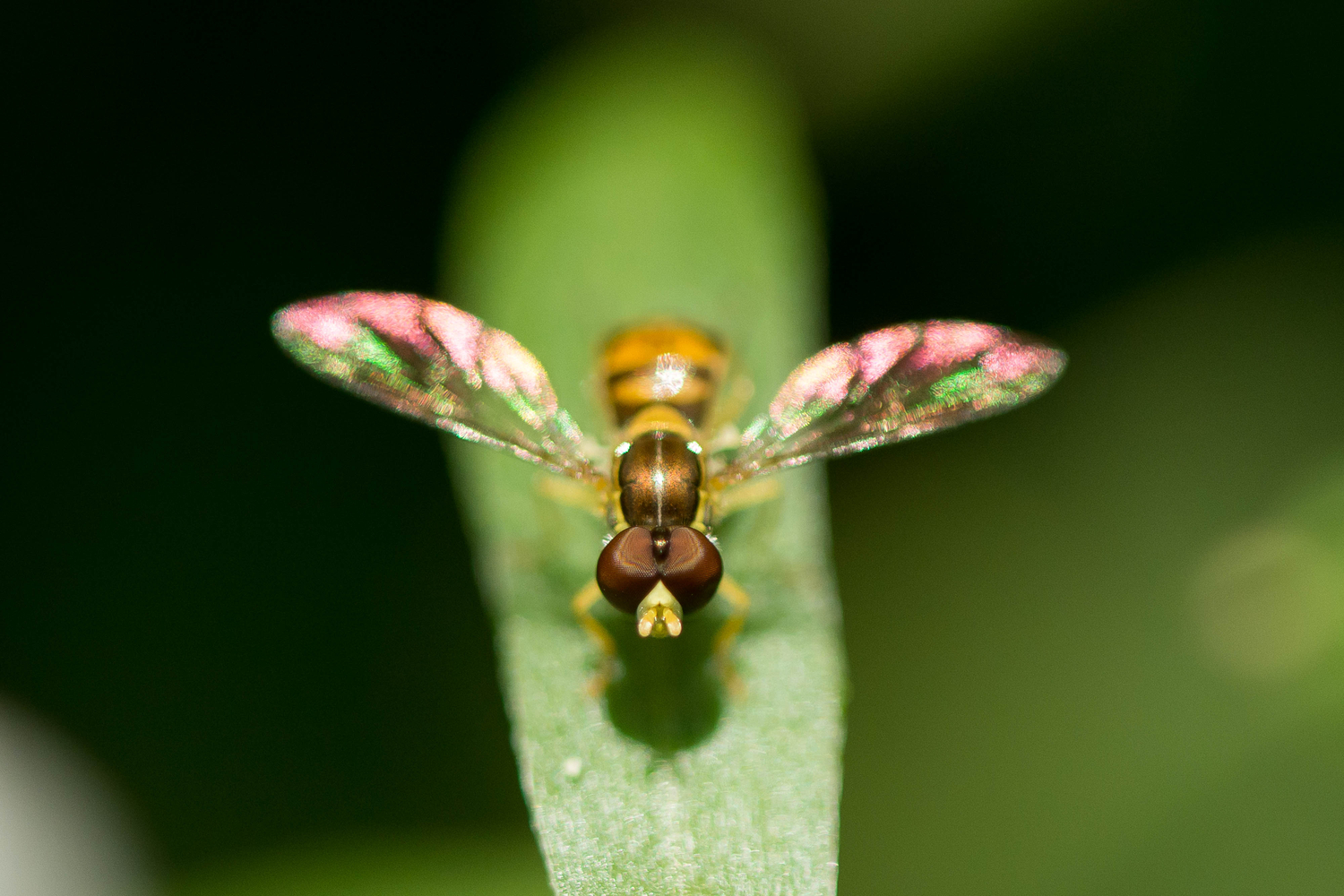
Flies
Some flies, such as flower flies and bee flies, are important pollinators. They visit flowers to consume pollen and nectar; in the process, sticky pollen becomes attached to their bodies. Many flies mimic wasps and bees in their shape and coloration, partly so that predators will avoid them.
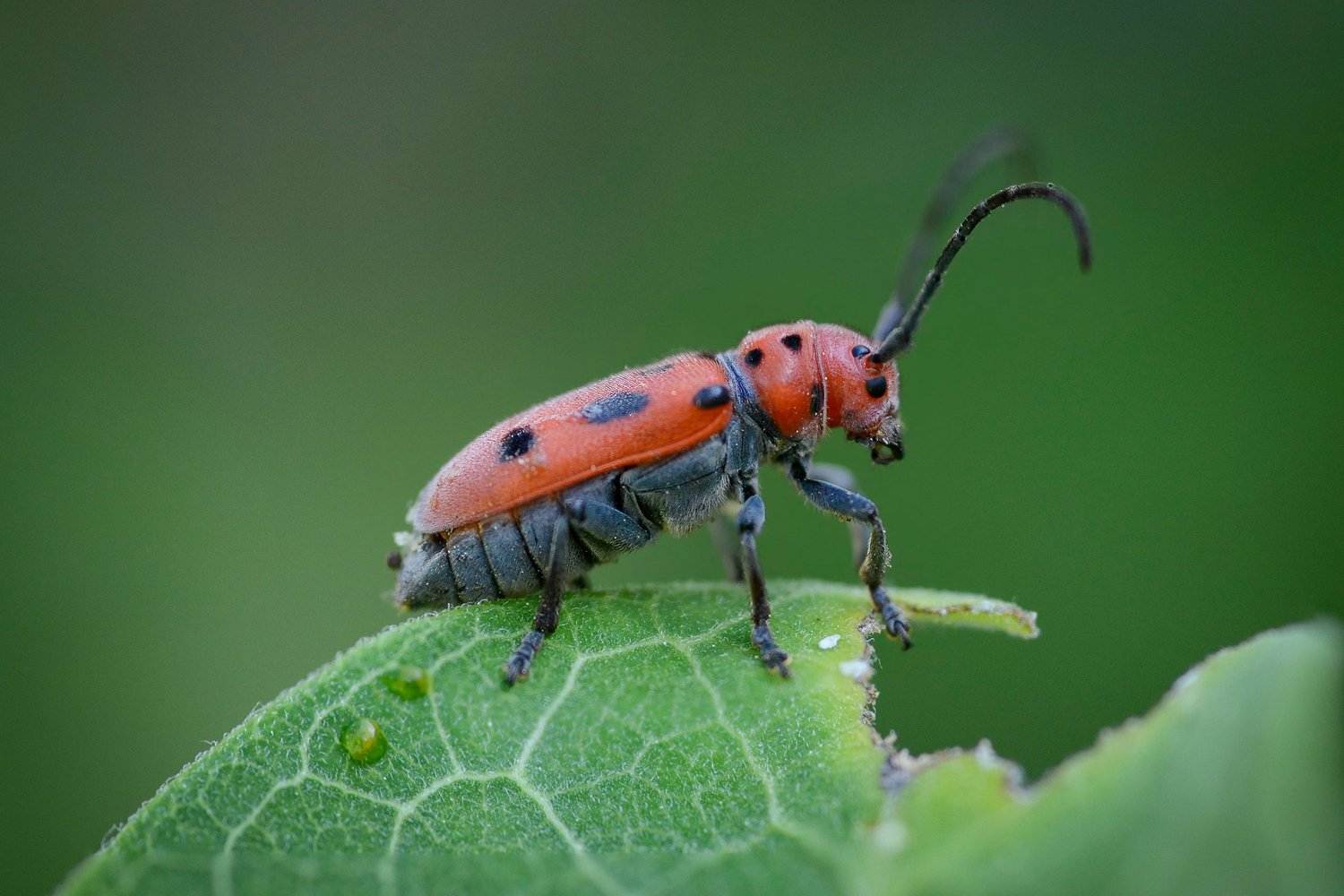
Beetles
The fossil record suggests that beetles were the first pollinators of flowering plants. Adult beetles feed on pollen and the flower itself. Pollen becomes trapped on their bodies and spreads between flowers.
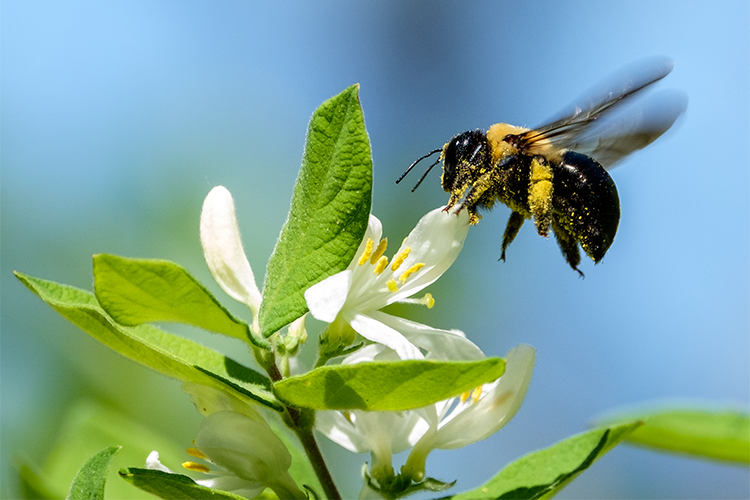
Bees & Wasps
Besides European honeybees, there are more than 365 bee species documented in Massachusetts. Adult bees eat nectar; they feed their young a mix of pollen and nectar. Wasps visit flowers to consume energy-rich nectar and sometimes pollen. As predators, wasps spend most of their time looking for insects to feed their young while foraging at flowers. Learn more about bees & wasps
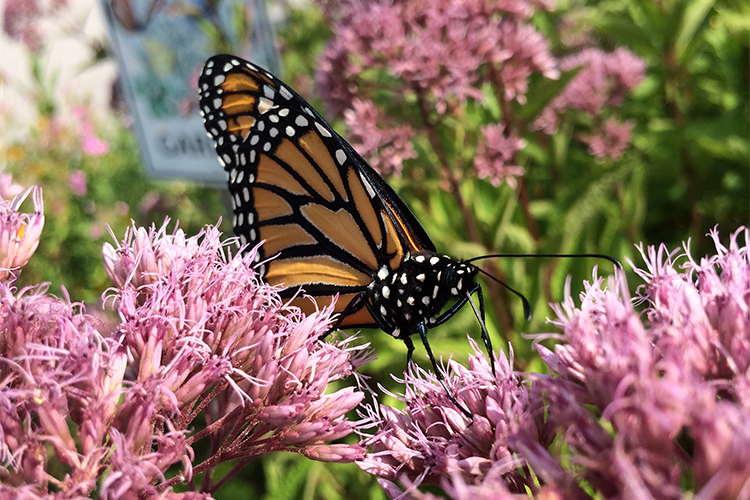
Butterflies & Moths
Butterflies and moths lay eggs on or near the vegetation they eat as caterpillars; these food plants are known as "host plants." As adults, they consume nectar from flowers and sugar from sap and fruit. Most butterflies and moths pollinate flowers that produce lots of nectar, such as native milkweed and columbine. Learn more about butterflies and moths
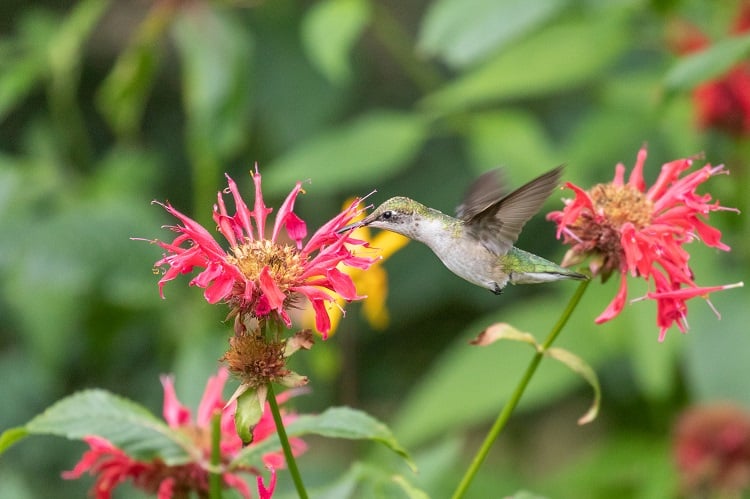
Ruby-Throated Hummingbird
This bird needs a great deal of food to keep energized, so hummingbirds visit flowers that provide a lot of nectar, such as the cardinal flower. Pollen sticks to the feathers around the bird’s bill and face and is carried to the next flower. Learn more about hummingbirds
Threats to Pollinators
Many species of pollinators are experiencing dramatic declines. Populations of native bees and other pollinators are threatened by climate change, pesticide exposure, habitat degradation and agricultural intensification, declining populations of native flowering plants, and introduced pathogens.
Populations of three bumblebee species in the eastern United States have declined by over 90% in the past 30 years.
How Mass Audubon is Helping Pollinators
Mass Audubon has been and continues to advocate for legislation to protect pollinators. And many of our wildlife sanctuaries have specially managed gardens designed to attract and support pollinators.
How You Can Help Pollinators
Fortunately, there are ways to help—and small changes can make a big difference.
- Plant a pollinator garden with native and beneficial plants.
- Try mowing less of your lawn or raise your mower to a higher setting to let violets and other small flowers remain.
- Minimize the use of pesticides and herbicides, which can kill pollinators and the plants they rely on.
- Buy or build a bee hotel, a structure for bees to nest in; many garden centers are starting to carry them.
More on Pollinators
Upcoming Pollinator Programs
Boston Area Beekeepers Open Hives
-
Boston Nature Center and Wildlife Sanctuary, Mattapan
-
Saturday, July 12
10:00am-12:00pm
Families - children 5 - 12 years
Meet the Beekeeper
-
Magazine Beach Park Nature Center, Cambridge
-
Saturday, July 12
4:00-6:00pm
Adults & Families - 0 - 17
Summer Sights & Sounds Series
-
Online
-
4 classes starting
Tuesday, July 15
7:00-8:30pm
Adults
Stay Connected
Don't miss a beat on all the ways you can get outdoors, celebrate nature, and get involved.



